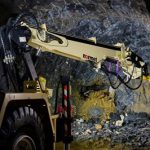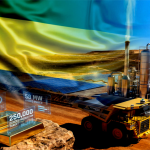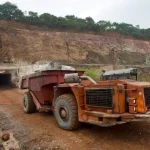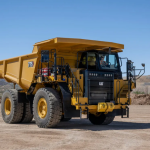A long-standing dispute between a Glencore Plc subsidiary and the Democratic Republic of Congo (DRC) revolves around a deal made years ago by Israeli businessman Dan Gertler, who has been sanctioned by the US for alleged corruption.
The conflict involves the Kamoto Copper Company (KCC), a significant copper and cobalt mine owned by Glencore, focusing on royalty payments directed to Gertler. Congo’s mines minister, Kizito Pakabomba, stated that the government believes a portion of these funds should have been paid to the state instead of Gertler.
Gertler was sanctioned by the US in 2017 for purportedly corrupt dealings in Congo, complicating matters as he continues to receive royalties from Kamoto and other mining projects in the country. According to Congo’s tax agency, DGRAD, Kamoto owes the state over €800 million ($885 million) in unpaid royalties. Gertler’s ongoing involvement highlights the broader challenges within the DRC’s mining sector.
His presence in the industry has made Western investors cautious about entering the country, despite the Biden administration’s efforts to diminish China’s dominance in the global supply of critical minerals. Currently, most of Congo’s mines are operated by Chinese companies.
Congo’s rich copper and cobalt resources are vital for the global energy transition, as these so-called “green metals” are essential for electric vehicle batteries and renewable energy infrastructure. The US views Congo as a key player in reducing China’s control over critical mineral supplies. However, attracting Western investment has been hindered by the country’s history of demanding large one-off payments and its association with Gertler, whose involvement raises concerns due to his sanctions status.
Kamoto Copper is one of the largest mines in the DRC, and earlier this year, its local bank accounts were frozen, and tax authorities briefly sealed a warehouse storing metal as part of the ongoing dispute.
The core issue revolves around the royalties Kamoto pays to Gertler. Minister Pakabomba noted that, in addition to these payments, Kamoto also pays a separate set of royalties to the government based on sales. While he did not provide further details, he indicated that a resolution to the dispute is approaching.
DGRAD contends that under Congolese law, 50% of the royalties paid to Gertler should be directed to the national treasury. However, the dispute raises questions about why the tax agency is pursuing Kamoto for these funds instead of Gertler himself. A Glencore spokesperson declined to comment, and Congo’s finance ministry has not responded to inquiries.
Gertler’s Ventora Group acknowledged the dispute but distanced itself from the matter, stating it is between KCC and the tax agency. The group denied involvement and claimed it was unaware of the details or merits of the claim.
Gertler acquired his royalty rights in Kamoto from Congo’s state mining company, Gecamines, over a decade ago. Despite selling his minority stake in the mine, he retained a 2.5% share of its revenue.
His connections to another Glencore-owned mine and Eurasian Resources Group’s project also enable him to benefit from similar royalty agreements. Although Gertler has never been charged with a crime and denies any wrongdoing, his dealings in Congo remain contentious.
This is not the first time Gertler’s royalties have caused friction with Glencore. After US sanctions were imposed in 2017, the company halted payments but resumed them in euros in 2018 after Gertler filed a lawsuit. Glencore stated it resumed payments to avoid the potential seizure of its Congolese assets, highlighting the delicate balance companies must navigate in Congo’s complex mining landscape.















